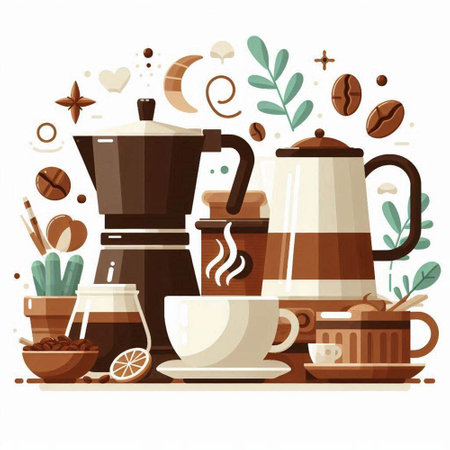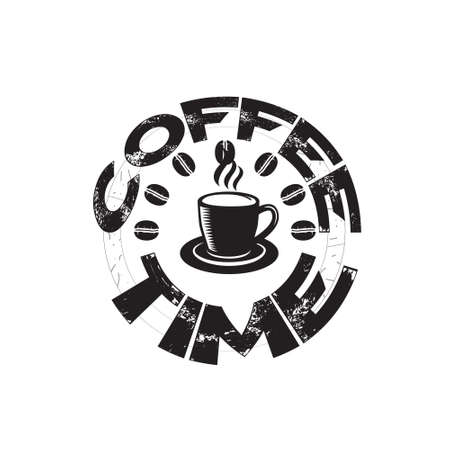1. The Evolution of Coffee Culture in the UK
Once upon a time, coffee in Britain was little more than a functional beverage—an unassuming cup to kickstart the day or accompany a few stolen moments at your desk. Fast forward to today, and you’ll find that coffee has blossomed into a celebrated cultural phenomenon, woven seamlessly into the fabric of British daily life. The rise of artisan roasters, independent cafés, and an ever-curious public has transformed coffee from a simple morning ritual into an experience to be savoured and shared. Across bustling cities like London and Manchester, as well as in quaint market towns, coffee culture now pulses with creativity and connection. This evolution is not just about what’s in the cup, but also about the language, rituals, and community events that have emerged around it—setting the stage for the thriving festival scene that celebrates both flavour and fellowship across Britain.
2. The Emergence of Coffee Festivals
In recent years, the UK has witnessed an exciting surge in coffee festivals, transforming the nation’s relationship with this beloved beverage. No longer limited to independent cafés and high street chains, coffee culture has spilled into grand venues, historic warehouses, and vibrant outdoor spaces. From London’s bustling metropolis to the creative corners of Manchester and the artistic heart of Bristol, these festivals have become pivotal events for both enthusiasts and industry insiders alike.
Celebrating Coffee Across the UK
The rise of local and national coffee festivals signals a growing appreciation for artisan coffee, specialty roasters, and sustainable practices. These gatherings are more than just tastings—they’re immersive experiences where visitors can watch live demonstrations, attend masterclasses, and discover the stories behind their favourite brews. The atmosphere is distinctly British: think lively chatter over flat whites, music echoing through converted railway arches, and the unmistakable aroma of freshly ground beans mingling with pastries from local bakeries.
Key Coffee Festivals in Major UK Cities
| City | Festival Name | Highlights | Typical Timing |
|---|---|---|---|
| London | London Coffee Festival | Barista competitions, artisan markets, sensory workshops | April |
| Manchester | Manchester Coffee Festival | Sustainable coffee talks, community brewing sessions, local roasters’ showcase | November |
| Bristol | Bristol Coffee Festival | Independent café pop-ups, latte art throwdowns, live music acts | September |
A Gathering of Communities and Cultures
Coffee festivals in the UK are more than just a celebration of caffeine—they serve as hubs for conversation and creativity. Attendees range from seasoned baristas to curious first-timers, all united by a shared curiosity about what’s brewing next. These events foster connections between producers, consumers, and communities, making each festival a vibrant tapestry woven with British charm and global influences. Whether you’re sipping a single-origin espresso or joining a panel discussion on ethical sourcing, every moment at these festivals is steeped in experience and discovery.

3. Language of Coffee: Britishisms and Conversational Nuances
Step into any bustling coffee festival or local community event in the UK, and you’ll soon notice that the language swirling around your flat white is as rich as the brew itself. The British have a unique way of talking about coffee—infusing conversations with slang, idioms, and a distinctive sense of etiquette that shapes every social interaction. Whether someone invites you to “grab a cuppa” or cheekily asks, “Fancy a natter over a brew?”, these phrases do more than just signal a coffee break; they open the door to connection and camaraderie. Brits often use endearing terms like “cuppa” or “Joe” for their coffee, but it’s the subtle conversational dance—polite offers, understated compliments on the barista’s skill, or gentle banter about someone’s “proper strong builder’s coffee”—that gives these encounters their charm.
Etiquette also plays a starring role in shaping the social experience at coffee events. There’s an unspoken code: queue patiently, thank your barista with a smile, and never forget the art of small talk. It’s not uncommon to hear someone say, “Milk and two sugars, please—if you don’t mind,” or to politely decline with a “Not for me, ta.” At festivals, this etiquette extends to sharing tables with strangers, exchanging recommendations (“You must try the single origin from Cornwall!”), and even friendly debates over whether oat milk is truly superior. In these moments, British conversational nuances transform casual sips into memorable experiences, making every cup an invitation to join the vibrant tapestry of local culture.
4. Community Experiences and Local Gatherings
Coffee festivals and community coffee events have become a cornerstone of British social life, offering more than just a caffeine fix. They foster a strong sense of togetherness, inclusivity, and shared experience among people from all walks of life. Across the UK, from bustling London boroughs to cosy corners of Edinburgh, these gatherings are cultivating new traditions rooted in connection and community spirit.
Celebrating Diversity Through Coffee
One of the defining features of modern coffee festivals is their remarkable inclusivity. These events bring together locals, expats, students, artisans, and small business owners, creating a melting pot where everyone feels welcome. The relaxed atmosphere makes it easy for people to strike up conversations, exchange stories about their favourite brews, or discover new roasters. This diversity is not only celebrated but also actively encouraged by festival organisers through workshops, tastings, and open discussions that invite participation from all backgrounds.
How Coffee Events Foster Community Spirit
Coffee-related gatherings are not just about sampling flat whites or learning latte art. They serve as platforms for meaningful social interaction and collective experiences. From charity pop-ups supporting local causes to collaborative art installations in independent cafés, these events spark connections that extend beyond the cup. The sense of belonging is further enhanced by activities such as:
| Activity | Description | Community Impact |
|---|---|---|
| Coffee Tastings | Guided sessions exploring beans from around the world | Encourages cultural exchange and broadens palates |
| Home Brewing Workshops | Hands-on classes for brewing the perfect cuppa at home | Empowers participants with new skills; promotes self-confidence |
| Local Art Exhibitions | Showcasing works by neighbourhood artists within cafés | Supports local talent and fosters pride in the community |
| Sustainable Coffee Talks | Discussions on ethical sourcing and environmental impact | Raises awareness and inspires action on sustainability issues |
The Power of Shared Spaces
Whether hosted in historic town halls or trendy converted warehouses, the venues themselves often play a significant role in shaping these communal experiences. The blend of old-world charm and contemporary design found in many British coffee event spaces provides a unique backdrop for building connections—making each gathering memorable and distinctly local.
A Lasting Impact on British Culture
The rise of coffee festivals and local gatherings has left a lasting imprint on Britain’s social landscape. By nurturing genuine human connections in an increasingly digital world, these events remind us of the simple joy found in sharing a cup with friends—old or new—and celebrating both our differences and common ground over something as universal as coffee.
5. Tasting Notes and the Art of Appreciation
At the heart of Britain’s burgeoning coffee festival culture lies a distinctive approach to tasting and appreciating coffee—one deeply influenced by the nation’s storied traditions of wine and tea appreciation. In true British fashion, these rituals are marked by a gentle curiosity and understated enthusiasm, blending precision with a sense of conviviality. Coffee tastings at festivals are often reminiscent of wine flights: attendees swirl their cups, inhale the aromas, and engage in lively discussions about notes ranging from “nutty undertones” to “citrus brightness.” This language borrows much from oenology, yet it is punctuated by uniquely local descriptors—think “biscuit-like finish” or references to classic British sweets.
The influence of tea culture is equally profound. Much as a seasoned tea drinker might debate the merits of Assam versus Darjeeling, British coffee aficionados delight in comparing single-origin beans or exploring new blends from independent roasters. The lexicon has evolved accordingly; words like “smooth,” “malty,” and “bracing” frequently surface, echoing those long used in describing black teas. Festival workshops encourage participants to trust their palates and invent their own tasting terms, fostering a sense of ownership and creativity within the community.
This shared vocabulary is more than mere semantics—it becomes a bridge that connects people across generations and backgrounds. Whether you’re sipping an Ethiopian pour-over in Bristol or trying a locally roasted espresso in Manchester, the act of discussing flavour notes invites conversation and camaraderie. For many British festival-goers, this communal exploration is every bit as important as the coffee itself, turning each tasting session into a celebration of both heritage and innovation.
6. Impact on Local Businesses and Sustainable Practices
Coffee festivals across the UK have become more than just celebrations of caffeine culture; they serve as catalysts for growth and innovation among independent cafés and local roasters. These events provide a vibrant platform where small businesses can showcase their unique brews, connect with new audiences, and collaborate with like-minded artisans. Many local cafés report a noticeable uptick in foot traffic following festival appearances, with attendees eager to revisit the flavours and experiences they discovered.
Championing Local Roasters
For independent roasters, coffee festivals are invaluable opportunities to share their craft directly with discerning consumers. Attendees often seek out beans roasted within their own communities, fostering a sense of local pride and encouraging the support of homegrown talent. This direct engagement helps to educate the public about different roasting profiles, brewing methods, and the nuances that set each roaster apart—deepening appreciation for specialty coffee well beyond the festival grounds.
The Shift Towards Ethical Sourcing
There’s a marked shift in the UK coffee scene towards transparency and sustainability, amplified by the ethos celebrated at these festivals. More organisers are curating line-ups that prioritise vendors who champion ethical sourcing, fair trade partnerships, and environmentally conscious practices. As a result, visitors are not only introduced to exceptional coffee but also to the stories behind each cup—highlighting farmers’ livelihoods, traceable supply chains, and innovative approaches to reducing waste.
Building Community through Sustainability
This focus on sustainability is reshaping consumer expectations and influencing purchasing decisions long after the festival ends. Independent cafés increasingly adopt eco-friendly packaging, implement recycling initiatives, and forge direct relationships with producers abroad—all inspired or accelerated by connections made at community events. The collective impact is a more resilient, responsible coffee culture that benefits both local economies and the wider environment.
In essence, coffee festivals are not merely fleeting gatherings—they are engines of positive change for Britain’s independent coffee sector. They inspire collaboration, champion sustainable practices, and strengthen the bonds between people passionate about quality coffee and conscientious consumption.


